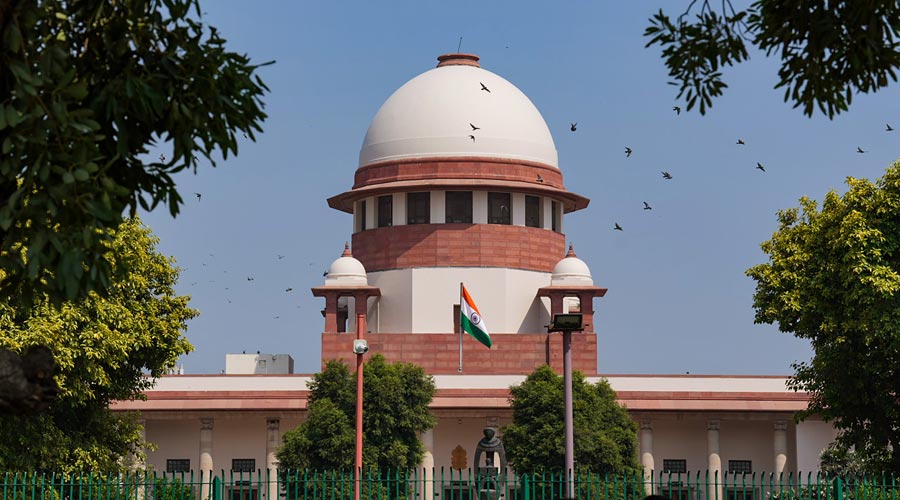Nithyakalyani Narayanan. V
Tuesday, March 19, at its hearing on the issue concerning the division within the Nationalist Congress Party (NCP), the Supreme Court questioned the Election Commission of India’s (ECI) justification for officially recognizing the Ajit Pawar side based only on the “legislative majority” criteria.
The Court questioned that this strategy would promote defections. A division bench with Justices Surya Kant and KV Viswanathan was hearing a Special Leave Petition that the Sharad Pawar group had submitted, which contested the ECI’s ruling from February 6.
The Court emphasized that the 10th Schedule was not in effect when the Election Symbols (Reservation and Allotment) Order was passed in 1968. The Sadiq Ali ruling ((1972) 4 SCC 664), established the guidelines for determining the true party in split disputes; nevertheless, it was rendered prior to the 10th schedule’s introduction. The ‘Anti-defection’ provision, often known as the 10th Schedule, was not included in the Constitution until the 52nd Constitutional Amendment of 1985. Although “split within a party” and “merger with another party” were originally recognised as legitimate defences under the tenth schedule, the defence of “split” was eventually removed from the list.
Justice Viswanathan wondered if the ECI could legitimise a defection through a “split,” which is no longer a defence under the 10th Schedule, by using the “legislative majority” test. The bench debated whether or not this would belittle the nation’s voters’ consciences.
Justice Viswanathan held, “In that scenario, when the Order (of Election Commission) is not based on organisational strength,based only on legislative strength, is it not recognizing a split, which is no longer approved under the tenth schedule….do not go by the legislative test then, go by the organisational test. And if you cannot, then what is the solution? It is a real worry because, otherwise you can engineer defections and then come and get the recognition of the party symbol. It is a mockery of the voter”.
It should be mentioned that the bench, which was chaired by Chief Justice of India DY Chandrachud, recently voiced reservations about the use of the “legislative majority” test to identify which side is a legitimate party. On March 7, the CJI made an oral observation regarding the Maharashtra Speaker’s reliance on the test of legislative majority, citing it as in conflict with the Supreme Court’s ruling in Subhash Desai (2023), during the hearing of a petition filed by Shiv Sena (Uddhav Balasaheb Thackeray) challenging the Speaker’s refusal to disqualify the MLAs of the Eknath Shinde group under the tenth schedule.
In Subhash Desai (the Shiv Sena dispute), the Supreme Court ruled that when two rival groups have developed following a split, the “legislative majority” criteria is inappropriate to identify the true party.
Notably, Senior Advocate Abhishek Manu Singhvi questioned the ECI’s ruling during the hearing today by citing the Subhash Desai ruling on behalf of Sharad Pawar.
The ‘legislative majority’ criterion was the basis for the ECI’s ruling, as the Ajit Pawar side had 51 out of 81 legislators. The panel used the legislative majority test to establish the faction’s legitimacy, even if other evaluations including the “aim and objectives” and “organisational majority” tests produced inconclusive results.
Following the hearing, the Court issued a temporary order granting the Sharad Pawar group permission to run for office in the Lok Sabha and State Assembly under the name Nationalist Congress Party – Sharad Chandra Pawar and with the symbol of a man blowing a turrah (trumpet). Additionally, the Ajit Pawar faction was directed to publicly declare that the use of the “clock” symbol in the upcoming Lok Sabha and Maharashtra Assembly Elections is subject to the outcome of the Sharad Pawar group’s challenge to the Election Commission of India’s (ECI) recognition of the Ajit Pawar faction as the legitimate Nationalist Congress Party (NCP).
Name of the case: Sharad Pawar v. Ajit Anantrao Pawar & Anr. | Special Leave Petition (Civil) No. 4248 of 2024
Bench: Justice Surya Kant and Justice KV Viswanathan

